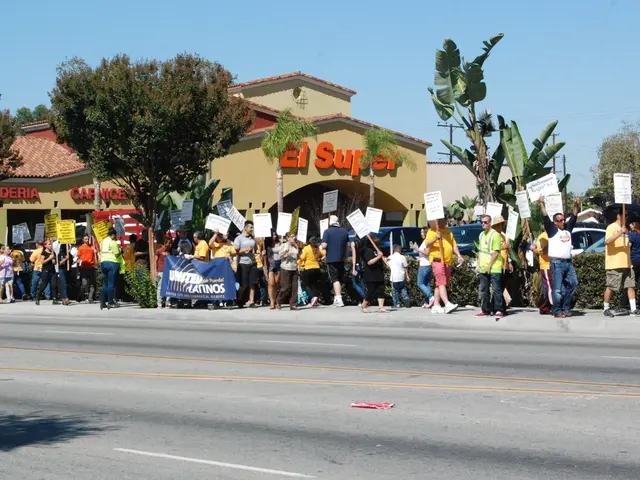The Significance of Language Skills in Security Aid Operations May Not Be as Crucial as Believed
In the realm of Security Force Assistance (SFA) missions, the importance of language training and cultural awareness in building combat-effective partners has been a subject of debate. Recent research indicates that while language skills are valuable, they are not necessarily mission-essential.
The US Indo-Pacific Command area of responsibility, spanning over half the world's population across thirty-six countries, sixteen time zones, and 52 percent of Earth's surface, poses a significant challenge in matching language skills with all possible contingencies. This vast region, home to diverse languages, has proven to be extremely challenging when it comes to training Special Forces (SF) personnel to a level where their language skills make a significant difference.
For instance, apart from Spanish, languages like Arabic, Farsi, Mandarin, and Korean present a dire situation, with very few soldiers scoring at the 3/3 level on the Defense Language Proficiency Test (DLPT). However, despite the dearth of truly capable linguists, SF advisors have managed to produce effective partners in the Iraqi Special Operations Forces (ISOF) in Iraq and the commandos in Afghanistan.
The graduation standard for language proficiency among SF soldiers is only 1+ on the DLPT, below the limited working proficiency level 2. Yet, the host-nation forces were trained by US Army Special Forces, ostensibly experts in cultural awareness and language skills. In Colombia, speaking Spanish was a mandatory component of the advisory effort, and this may have contributed to the success in that region.
Building a strong, trusting relationship between advisors and partner forces is crucial. Historical cases like the Korean Military Advisory Group show that advisor effectiveness grows over time as relationships mature and advisors learn about the partner country’s context. The establishment of specialized advisory units, such as the U.S. Army's Security Force Assistance Brigades (SFABs), professionalizes advisory efforts and improves the ability to shape the battlespace before, during, and after conflict.
Advisors must be capable of adapting to dynamic environments using innovative technologies and techniques. Special Forces operators, who frequently conduct SFA activities, are trained to operate in complex multinational and interagency contexts, often far from logistical support. While specific language solutions are not always detailed, common practice in SFA missions involves employing interpreters and cultural advisors to bridge communication gaps.
Effective cultural and situational awareness helps overcome language barriers. Advisors emphasize training, advising, and empowering partner forces to operate autonomously, even when direct communication is limited. This reduces reliance on constant verbal guidance and supports sustainable local force development.
Coalition forces spent an astounding $83 billion on training and equipping Afghan security forces, yet smaller pockets of host-nation forces performed admirably despite the overall failure to build capable security forces. In both Iraq and Afghanistan, there were instances where host-nation forces fought doggedly against adversaries, despite the language barriers.
In the case of the ISOF, they fought doggedly against the 2014 Islamic State offensive in several cities and took 40% casualties in Mosul. Without the ISOF, Iraq could have collapsed and might not be a unitary state today. Similarly, in Afghanistan, the Afghan National Army's commandos showed remarkable resilience.
In summary, the effectiveness of host-nation forces in SFA missions emerges from long-term relationship building, professional advisory teams, adaptive operations, cultural understanding, and a focus on local capacity development. Language barriers are mitigated by time, cultural competence, and structured advisory frameworks rather than direct linguistic fluency alone.
Read also:
- Weekly happenings in the German Federal Parliament (Bundestag)
- Southwest region's most popular posts, accompanied by an inquiry:
- Discussion between Putin and Trump in Alaska could potentially overshadow Ukraine's concerns
- Tinubu's administration allegedly causing issues within every political party as Peter Obi's name surfaces - Obidient Movement asserts







